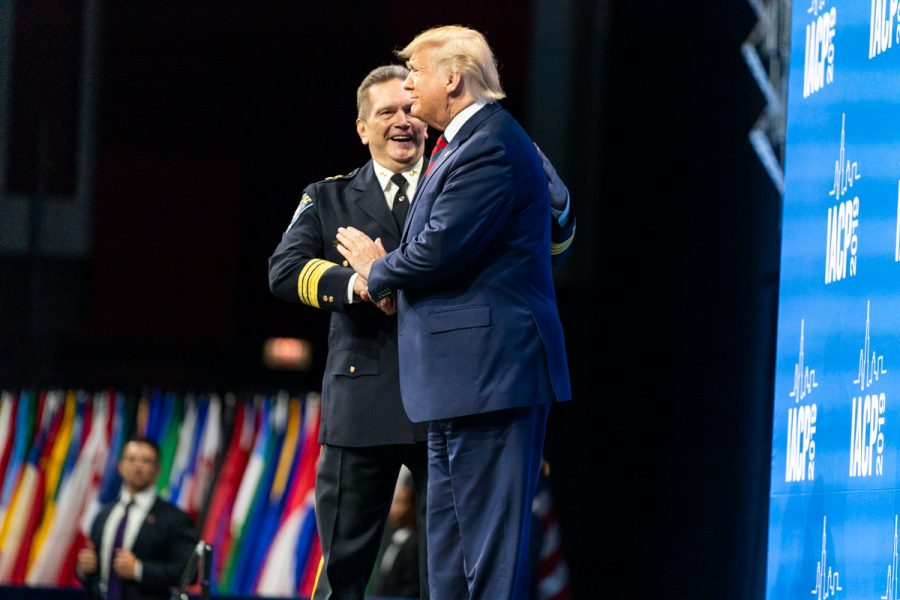President Donald Trump’s decision to fire National Security Adviser John Bolton was one that saved the country from decades of war.
On Sept. 10 Trump said on Twitter, “I informed John Bolton last night that his services are no longer needed at the White House. I disagreed strongly with many of his suggestions, as did others in the Administration, and therefore I asked John for his resignation, which was given to me this morning. I thank John very much for his service. I will be naming a new National Security Advisor next week.” He then continued to elaborate in more tweets.
The role of the national security adviser is to advise the president of the United States on national security issues.
Unlike Cabinet members like the secretary of defense, the national security adviser is exempt from Senate confirmation unless they are military generals.
Bolton is no general.
He supported the Vietnam War but couldn’t muster the courage to join it himself. In his Yale 25th reunion book Bolton wrote, “I confess I had no desire to die in a Southeast Asian rice paddy. I considered the war in Vietnam already lost,” as reported by the Yale Daily News.
The sudden firing of Bolton couldn’t have come sooner. His dangerous presence in such an influential position with exclusive access to the president and lack of civilian oversight, was worrying.
For someone who hasn’t served an iota of time in warfare, Bolton sure had a knack for supporting it from his armchair.
As if the United States wasn’t in enough wars already, he had supported striking North Korea first and overthrowing the government of Iran.
Trump’s relatively non-interventionist campaign rhetoric was completely antagonized by Bolton’s immensely pro-regime change expression on cable news.
The War on Terror cost American taxpayers trillions of dollars and the lives of thousands of fellow Americans.
“The United States federal government has spent or obligated $5.9 trillion dollars on the wars in Afghanistan, Pakistan and Iraq,” The Watson Institute for International studies at Brown University stated.
The goal of the United States should be to leave global conflicts alone and focus on homeland issues.
On the issue of North Korea, any dialogue or discussion is better than war. Any form of dialogue with Iran is better than creating another quagmire in the Middle East.
The elite of Washington, D.C. do not have to suffer the consequences of their actions.
Middle-class and lower-class Americans are viewed as numbers and statistics to them.
Every person who has experienced war firsthand knows the brutal reality of it.
Bolton seemed to be thinking it was a video game with the foreign policy rhetoric he used.
And make no mistake, Trump has also made very alarming foreign policy decisions himself.
But the less influence Trump has over war, the better it is for the country.
It must be very important to note that in foreign politics, it is much easier to have a dialogue with countries than it is with non-state actors, as there is much more room for leverage.
It is favorable to talk with anyone, but with state actors like Iran and North Korea there are options for economic sanctions and some form of vulnerability on their side.
Talking with North Korea is much easier than the Taliban, as there is much more for North Korea to lose.
Americans who have family serving in the military experience a lot of hardship.
American taxpayers should celebrate the fact that there is a less likely chance to be dragged into another bloody conflict.
During these conflicts, many lives are sacrificed and trillions of dollars are wasted.
Being the national security adviser doesn’t require being a yes-man to the president, but rather providing moral and ethical options to problems affecting the country and humanity at large.






